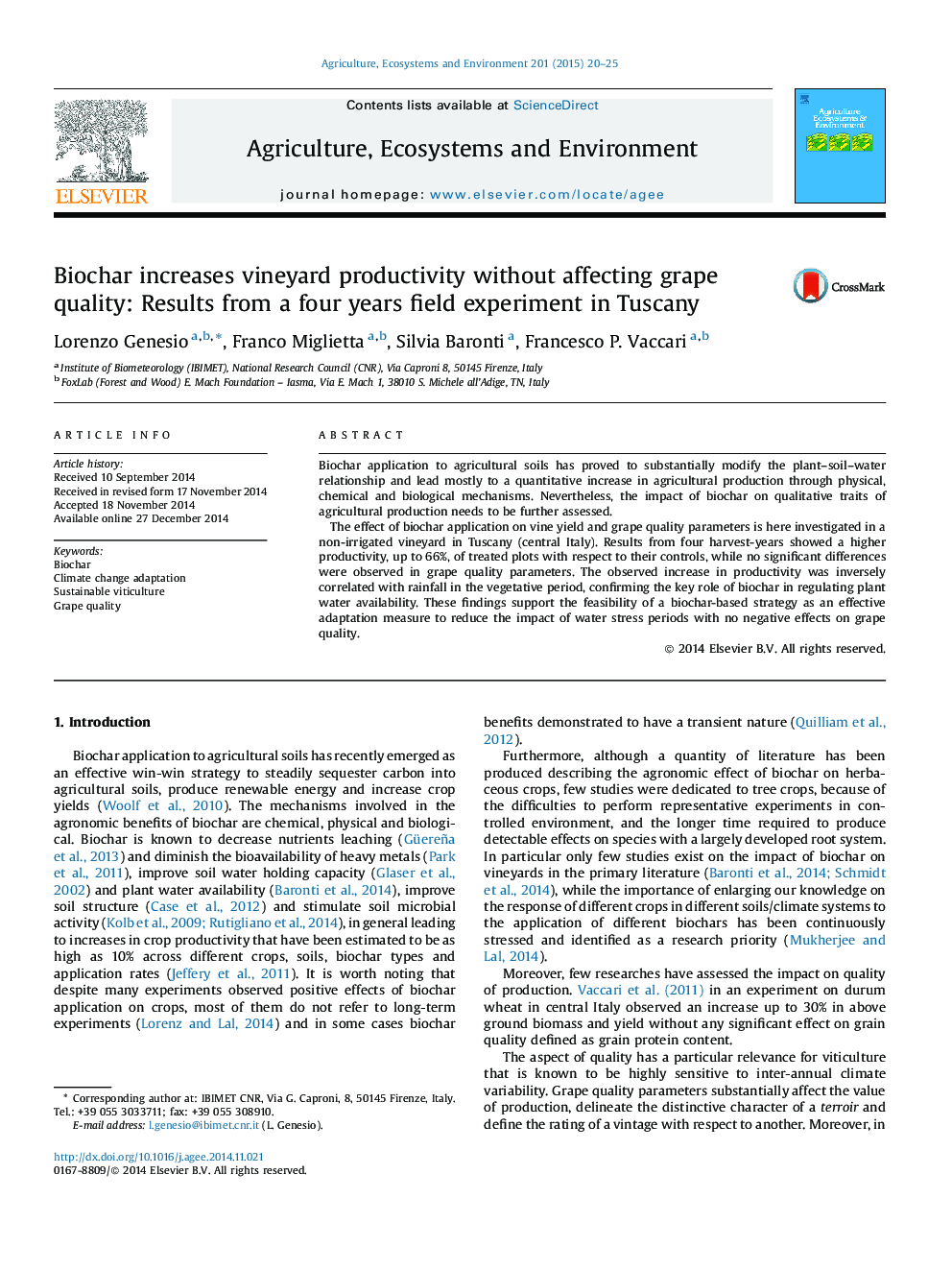| Article ID | Journal | Published Year | Pages | File Type |
|---|---|---|---|---|
| 2413732 | Agriculture, Ecosystems & Environment | 2015 | 6 Pages |
•Biochar was applied to a non irrigated vineyard in central Italy.•Grape yield increased significantly across four harvests in biochar treated plots.•Yield increase was inversely correlated with rainfall.•No significant difference was found in grape quality parameters.•Biochar can be a suitable strategy for vineyard adaptation to water shortages.
Biochar application to agricultural soils has proved to substantially modify the plant–soil–water relationship and lead mostly to a quantitative increase in agricultural production through physical, chemical and biological mechanisms. Nevertheless, the impact of biochar on qualitative traits of agricultural production needs to be further assessed.The effect of biochar application on vine yield and grape quality parameters is here investigated in a non-irrigated vineyard in Tuscany (central Italy). Results from four harvest-years showed a higher productivity, up to 66%, of treated plots with respect to their controls, while no significant differences were observed in grape quality parameters. The observed increase in productivity was inversely correlated with rainfall in the vegetative period, confirming the key role of biochar in regulating plant water availability. These findings support the feasibility of a biochar-based strategy as an effective adaptation measure to reduce the impact of water stress periods with no negative effects on grape quality.
